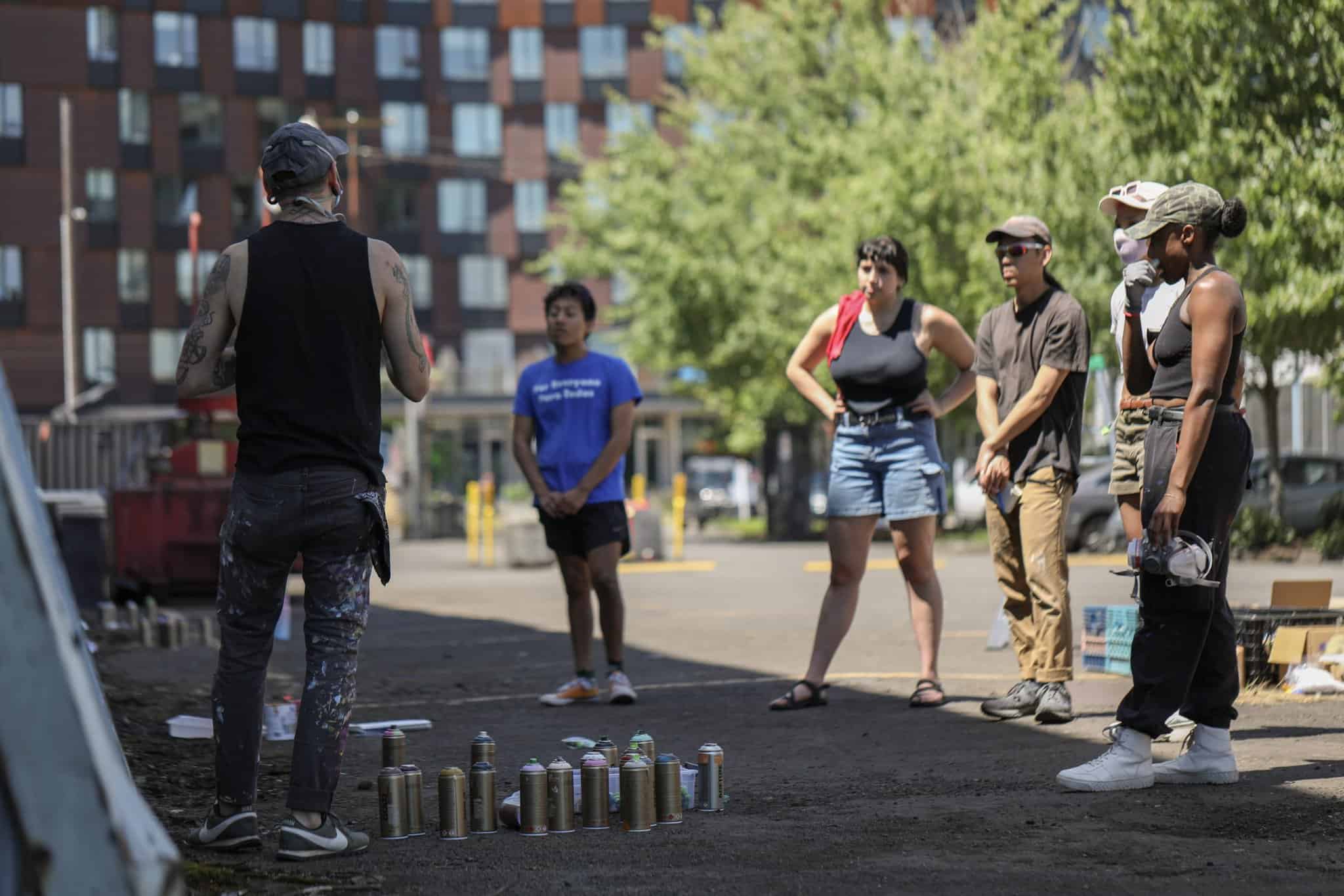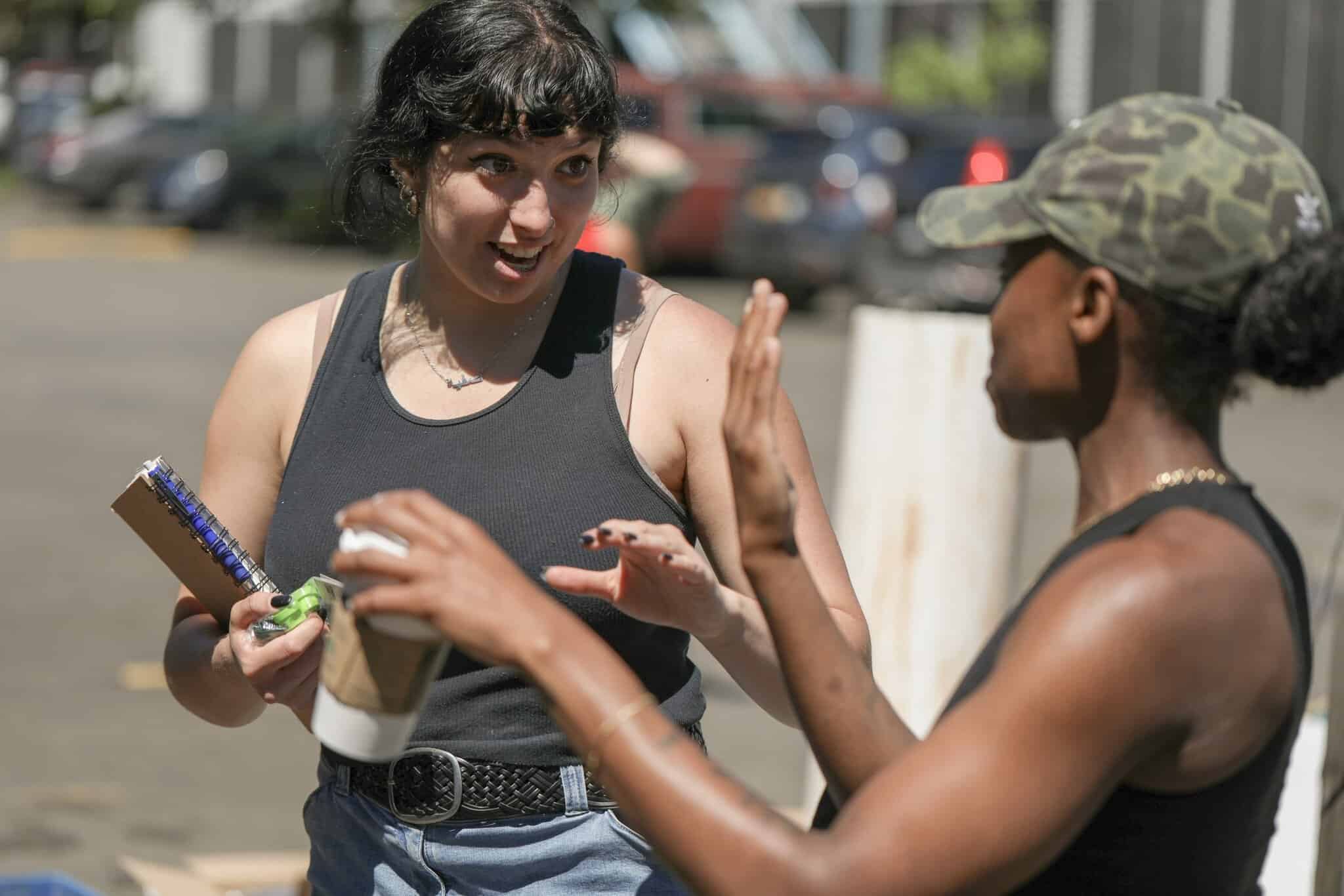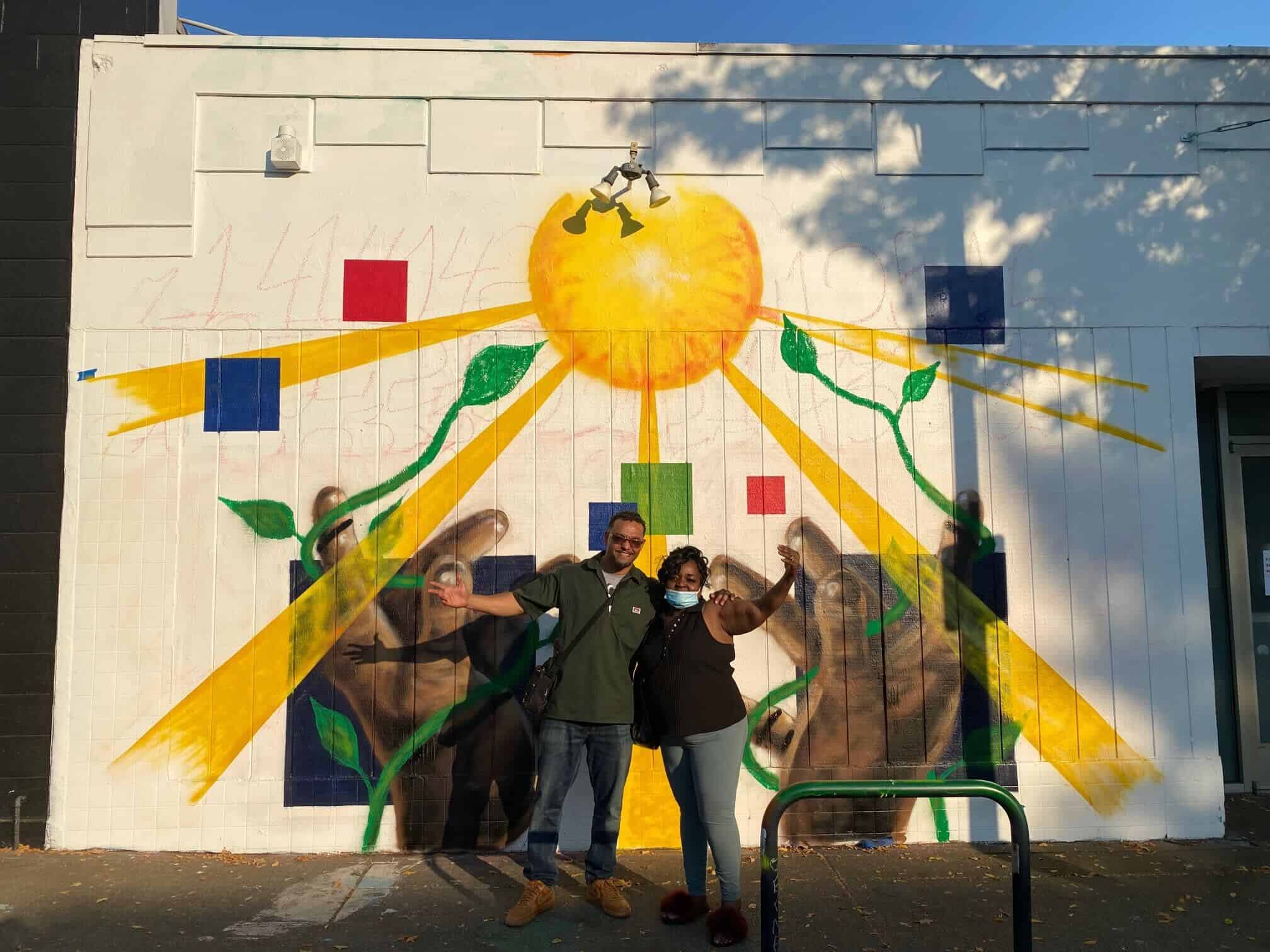 We are pleased to announce in partnership with the City of Hillsboro, Miller Paint, and TriMet a collaborative opportunity supporting public art in our community. This project is also supported with funds from the City of Portland. Envisioned over the last two years, this program has come to fruition with guidance by administrators Salvador Mayoral IV, the Public Art Manager at the Regional Arts & Culture Council (RACC) and program consultant Ella Marra-Ketelaar as well as RACC’s Public Art Murals Committee.
We are pleased to announce in partnership with the City of Hillsboro, Miller Paint, and TriMet a collaborative opportunity supporting public art in our community. This project is also supported with funds from the City of Portland. Envisioned over the last two years, this program has come to fruition with guidance by administrators Salvador Mayoral IV, the Public Art Manager at the Regional Arts & Culture Council (RACC) and program consultant Ella Marra-Ketelaar as well as RACC’s Public Art Murals Committee.
In June of 2022, a cohort of emerging muralists of color were selected and paired with established muralists, all from the Portland metro area. The program’s aim is to support these emerging muralists throughout the mural creative process by providing mentorship, mural-making workshops, and the opportunity to create and paint a design all the while being monetarily compensated for their energy, time, and labor to undergo this process. One of the program’s key goals is to foster relationships with their fellow muralist participants through the attendance of the workshops, meeting regularly with their mentors, thus creating a network of support and access. This was instrumental in preparing the cohort of emerging muralists to paint their own mural designs on the many donated spaces from the Going Public! partners.
“We’re thrilled to be part of RACC’s Going Public! mentorship program,” TriMet’s Public Art Administrator Michelle Traver said. “TriMet is also committed to nurturing emerging artists and we are pleased to host artist Rebecca Rodela’s first mural, Lotería en Portlandia, at the Gateway Transit Center, where it can be experienced by our riders and the general public alike.”
“We are excited to partner with RACC to bring more colorful murals to our neighborhoods,” said Puji Sherer, Miller Paint’s Vice President of Marketing, Color & Brand. “Our Hollywood store in Northeast Portland is one of the mural sites for the project which is in the heart of this community.”


All but one mural will be completed by the end of November 2022. Follow the mural making process by visiting the social media accounts of RACC, our partners, and the artists.
“Community building and skill sharing are at the forefront of Going Public!” said program consultant Ella Marra-Ketelaar. “It has been incredibly important to feature established artists (mentors and workshop presenters) that are willing to share their years of collective knowledge with the next generation of muralists. The program’s role is to create a platform, their knowledge, and collaboration is what makes it possible”.
The workshop presenters include, Sarah Farahat, Bernadette Little, Adam Ciresi, Molly Mendoza, Ursula Barton, Daren Todd, Kyra Watkins and William Hernandez.
The mentors include, Kyra Watkins, William Hernandez, Alex Chiu, and Patricia Vásquez Gómez.

All images by Leo Townsell, July 2022 at one of the workshops in Zidell Yards.
The cohort of muralists include, Abdiel Flores Ubaldo, Saphya Lones, Nabíl De la Rosa, Rebecca Rodela, and Tim Tran.
Carol Tatch, RACC’s Chief of External Operations, stresses the importance of leading with RACC values of access, inclusivity, and equity. “It’s not just that you get to wake up and it’s there, but you actually get to see the process. It is definitely important to the economic prosperity of any region to have public art — art that is accessible. That just brings rewards for everyone in the community.”
For more information please contact Salvador Mayoral, the Public Art Project Manager.



